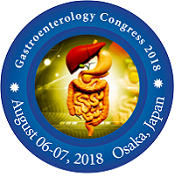
Sheryl Lim
S Lim, Cardiff University School of Medicine, Department of Gastroenterology, University Hospital of Wales
Title: Nutritional assessment and vitamin deficiencies in patients with Neuroendocrine Tumours (NETs)
Biography
Biography: Sheryl Lim
Abstract
Introduction:NETs have diverse natural history and clinical syndromes. As a result of the disease or related to management, patients may have altered gut or pancreatic function that can cause nutritional deficiencies. There is a lack of consistent evidence-based dietetic guidance for patients with NETs.Aim:This study evaluated whether nutritional status and nutritional deficiencies had been assessed in patients with NETs in an existing service in South Wales.Method:A retrospective study included 141 NET patients seen in Gastroenterology (n=74) and Endocrinology (n=67) clinics. Key parameters collected were: BMI, weight, vitamin B12, Ferritin, Folate, Albumin, vitamins A/D/E and presence of steatorrhoea. Evidence of treatment with vitamin or iron replacement and use of bile acid sequestrants or Creon was also recorded.Results :Weight was recorded in under half of patients (n=70) and BMI in just 14% (n=20). 54 patients reported weight loss, 70% of these (n=38) had a quantified weight loss, 46% had percentage weight loss calculated.106 patients (75%) had been investigated for a form of vitamin or iron deficiency. The likelihood of investigation was significantly higher in Gastroenterology clinic patients than Endocrine clinics (95% vs. 54%, p<0.01). 57% of those investigated were found to have a deficiency, which was consistent across specialities: 59% (41/70) of those from Gastroenterology clinics and 53% (19/36) from Endocrine clinics. 41/60 patients (68%) with a recorded deficiency did not have sufficient replacement. 7/27 patients with iron deficiency were given supplementation. 38 patients had vitamin D levels tested (27%), 29 were insufficient (76%).27 patients reported steatorrheoa, 26 of whom were prescribed somatostatin analogues. 96% of these patients were also prescribed Creon.Conclusion :Although higher rates of nutritional assessment were found in patients who had been assessed by Gastroenterology and with gastro-specialist dietetic involvement, assessment and management of nutritional status in patients with NETs remains an unmet need.

